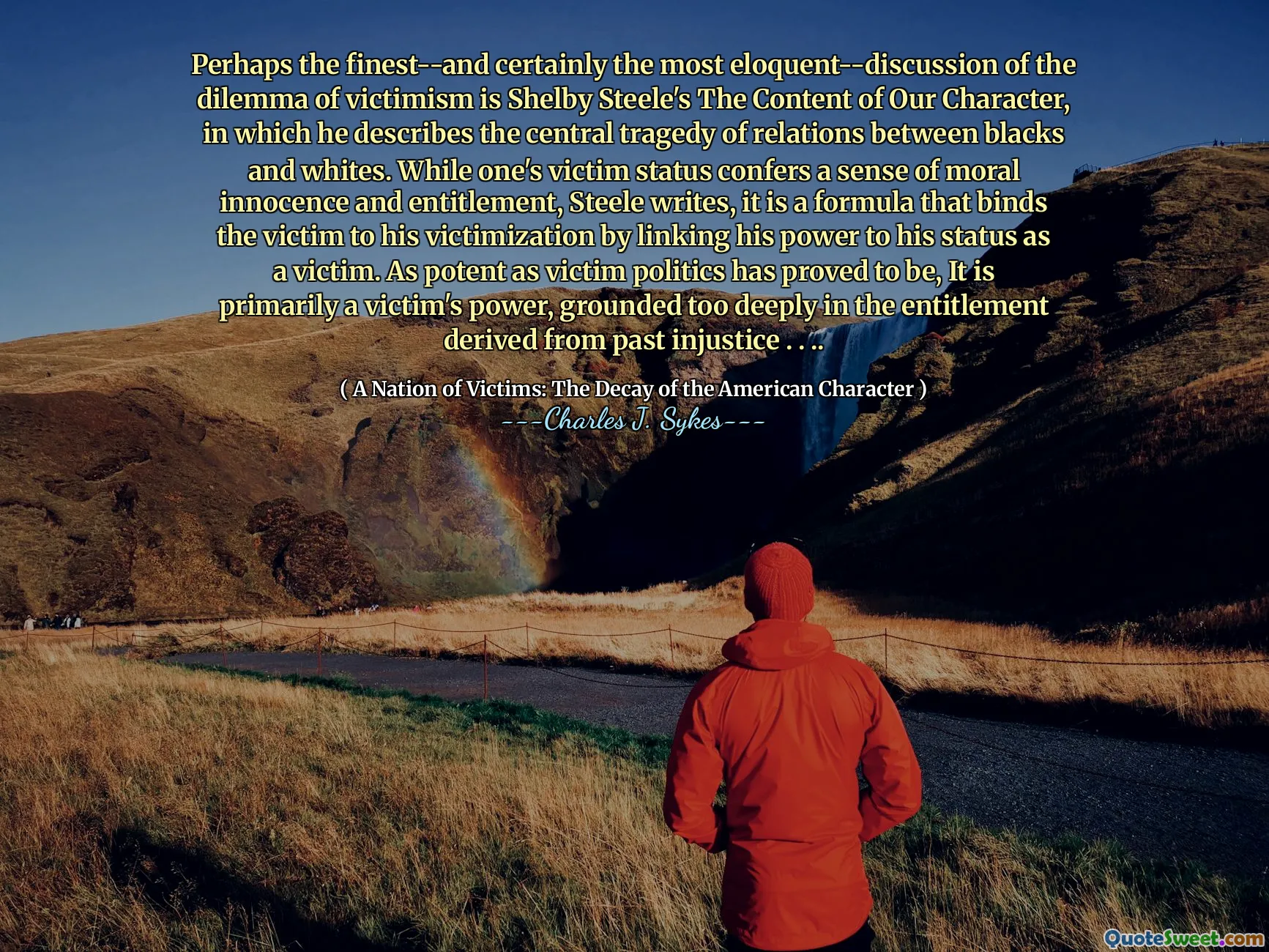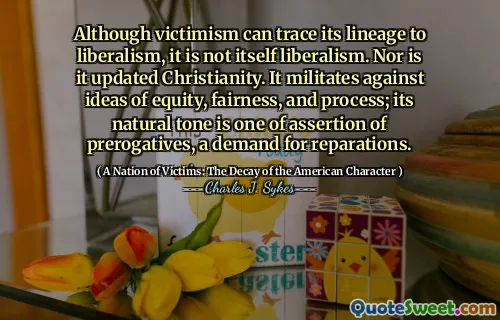
Perhaps the finest--and certainly the most eloquent--discussion of the dilemma of victimism is Shelby Steele's The Content of Our Character, in which he describes the central tragedy of relations between blacks and whites. While one's victim status confers a sense of moral innocence and entitlement, Steele writes, it is a formula that binds the victim to his victimization by linking his power to his status as a victim. As potent as victim politics has proved to be, It is primarily a victim's power, grounded too deeply in the entitlement derived from past injustice . . ..
Shelby Steele's work in The Content of Our Character provides a profound exploration of the intricacies surrounding victimhood, particularly in the context of black and white relations. He articulates that individuals who identify as victims often gain a sense of moral superiority and perceived entitlement. However, this reliance on victim status also creates a cycle, where their power is inherently tied to their victimization, making it difficult to transcend that label.
Steele's insights suggest that while victim politics are influential and can empower, they also trap individuals within the framework of their past injustices. This dynamic reinforces the notion that victims derive their strength from their experiences of victimization, which can hinder personal growth and broader societal healing. Charles J. Sykes' A Nation of Victims elaborates on this theme, indicating that the consequences of such entitlement can ultimately contribute to the decline of character within American society.







